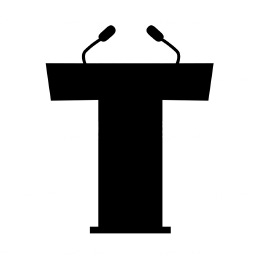Once again, those of us in the universe of books – authors, agents, publishers, booksellers and readers – owe thanks to Michael Cader at Publishers Marketplace for posting extensive transcripts and analysis from the trial.
Judge Florence Pan in the U.S. District Court in Washington D.C. presided over the three weeks of testimony with what, seemed to me, inquisitive engagement, which reflected authority but essential ignorance about the universe under examination.
Her responses to the closing arguments from the two sides appeared to favor the government case, which was that whatever else might be at stake, the existing competition between the publishers would be better than the proposed consolidation.
The Department of Justice has focused on ATSB – Anticipated Top Selling Books – a category devised by their experts which encompasses about 2 percent of all books published a year, by arbitrarily setting the base of the advance at $250,000 or more. The argument is that a merger would reduce the level of advances to those authors.
The potential impact on the remaining 98 percent of books was barely considered. The PRH and S&S defense had to contest the case on its premise – mainly about large advances – rather than the buoyancy of the industry as a whole. As I wrote last week, this is like measuring music and concerts on the earnings of Beyonce and whether Bruce Springsteen tickets being dynamically priced should run to $5000.
If DOJ prevails at the District Court level, PRH will almost certainly appeal, if for no other reason than to avoid the considerable break-up fees and the discombobulation that the case has already caused at S&S, which will still be for sale, and PRH which has been planning on the merger.
For what its worth, my personal opinion – having gotten as close to the issues as possible from a distance – is that no matter what the ultimate outcome of the DOJ lawsuit, it will actually have very little (if any) impact on most authors and books.
Data at the trial confirmed what was already widely known among publishing people. The great majority of books actually sell a small number of copies, in the low thousands. Does that mean they are not worth the trouble to write, read or sell them? The largest publishers – the so-called “Big Five” – can afford the highest end of advances and that will continue no matter what happens in this case.
Is the scale of advances for Steven King – who argued against the merger –the best measure for competition in the world of books? That’s what the trial suggested. I would argue that is wrong.
**************************************************************************************
A knowledgable friend, after reading about the trial, offered an intriguing way forward. Judge Pan could you possibly be listening?
Given the narrowness of the case, which the testimony and evidence reflected, the judge could send the parties back to devise conditions that would effectively guarantee that the hundreds of imprints would maintain their editorial independence in a merger —as acquired imprints at the “Big Five” have long done —and the rules under which they can bid against each other. Of course, there would have to be circumstances for changes as there are in any business —one witness got a courtroom laugh by saying that “publishing business is an oxymoron”.
This would not be the expected yea or nay of the DOJ’s antitrust suit. But the judge has the authority to adopt this position on how the merger might proceed — and protect as much as possible, the integrity of the imprints and the competitive nature of publishing acquisitions.
My friend, not a publishing professional I should add, knows the law. This trial so far is not really about books. It has been about money for the most successful authors, not everybody else.




Agree. What is the public interest in whether best-selling authors' advances might get smaller? DOJ put the cart before the horse.
Completely agree.